The 10 Best Colors for Small Bedrooms, According to Color Experts and Interior Designers
We’ve consulted the experts to find the best space-enhancing and cozy, comforting shades ideal for compact bedrooms
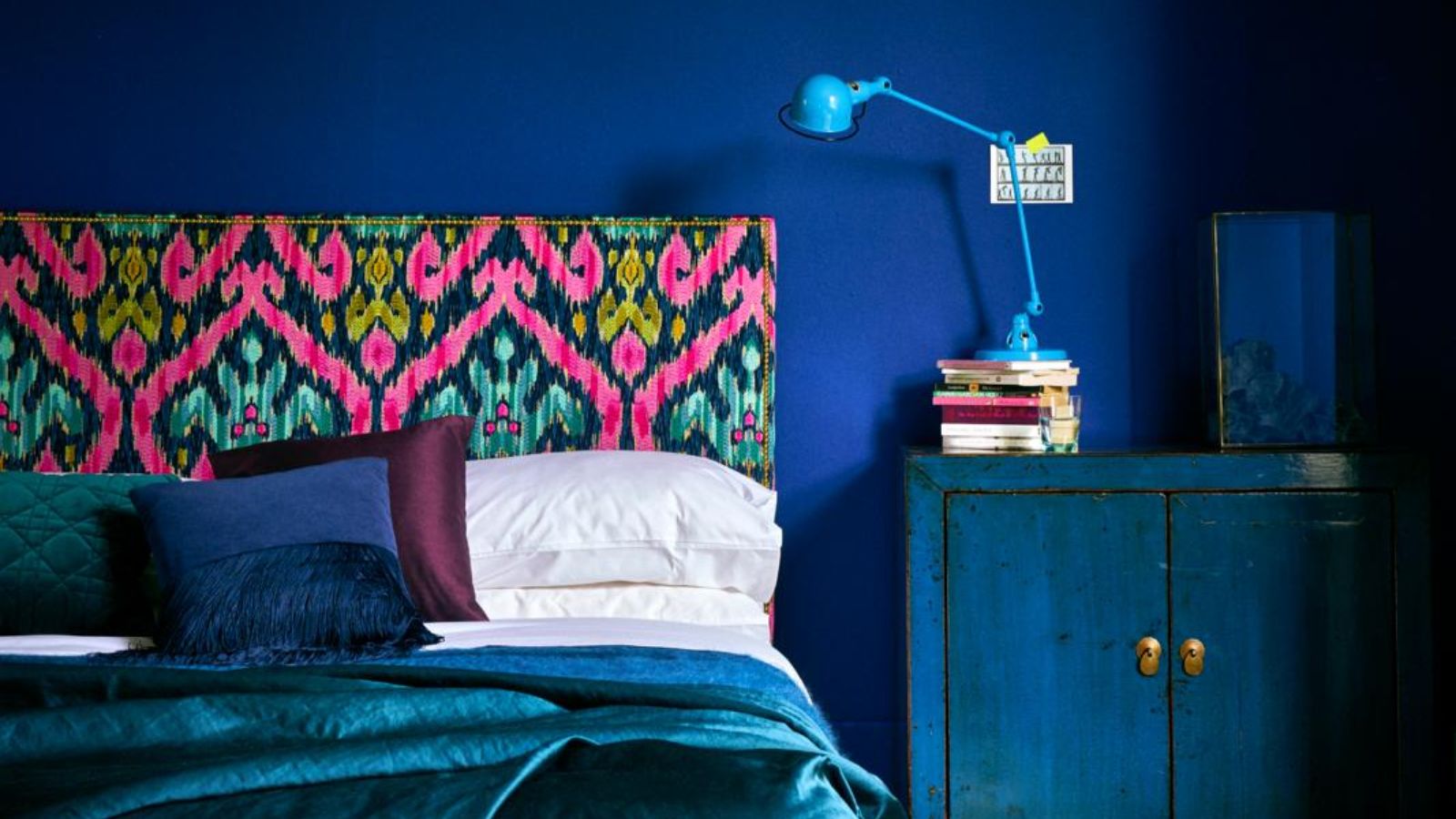

Lola Houlton
The right colors can completely transform a small bedroom, whether you're looking to brighten yours up, make it feel larger and airier, or turn it into a cozy, calming space.
While no bedroom color ideas can physically expand your square footage, the right shade can influence how light is reflected, and create the illusion of depth. Of course, white is the color that's best known for its unrivalled space-expanding properties in a small bedroom, but it's not always the warmest or most welcoming. Bright colors with plenty of white in them, such as yellow, can make a tiny bedroom feel open and airy, while darker hues, brown, caramel, even dark red, can add richness and intimacy, helping smaller bedrooms feel more inviting.
But which are the best colors for your small bedroom? To help you choose the perfect palette, we asked color experts and interior designers to share their favorite picks for small bedrooms.
1. Cool, soft greens
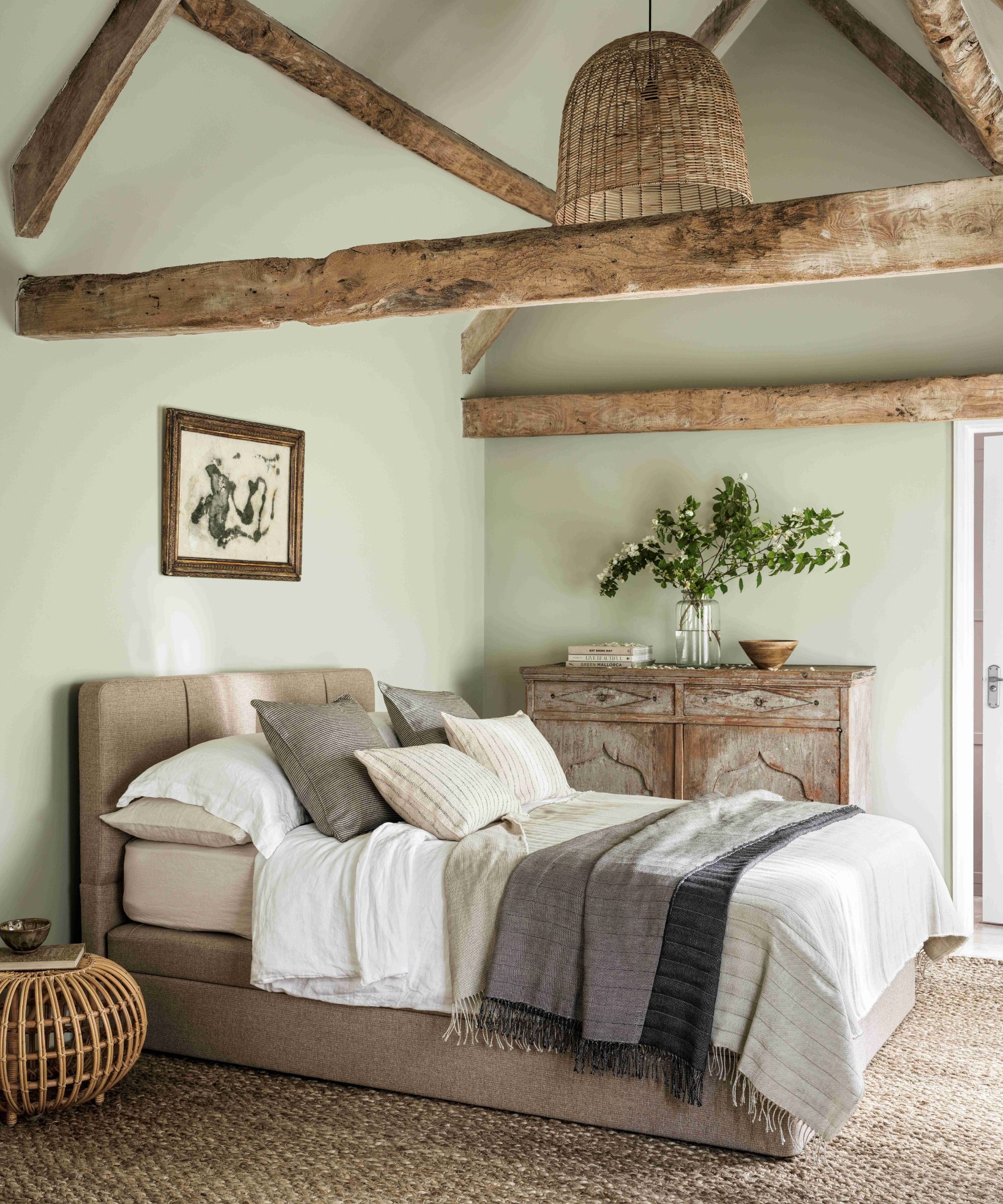
Cooler tones are perfect for smaller bedrooms as they create a calming atmosphere, plus they can have the same light-enhancing effects as white, helping to bounce daylight and lamplight around the space. Soft green bedrooms, in particular, will feel soothing and expansive.
Olive green bedrooms are a favorite amongst designers: “A deep, muted green feels grounding and cozy, making your bedroom space feel like a restful retreat," says Cheryl Clendenon, founder of In Detail Interiors. "The muted tone will keep it from feeling too overwhelming and also give the illusion of more depth and space. As an earth tone, it's also perfectly on trend for 2025 and the growing desire for more nature-inspired palettes. When combined with warm neutrals, natural textures, and soft lighting, it will create a bedroom that is equally as stylish as it is comforting.”
"Light greens can enrich a room with a hint of color without taking it over – greens are nature’s neutral so can work really well for a calming bedroom and can offset other colors beautifully," says Dominic Myland, CEO of Mylands.
Other colors that go with green? Experts advise against combining these more muted hues with anything too jarring in a small bedroom: "Do try limiting the palette in a smaller room too – introducing too many different colors can make it appear bitty and harder on the eye," continues Dominic.
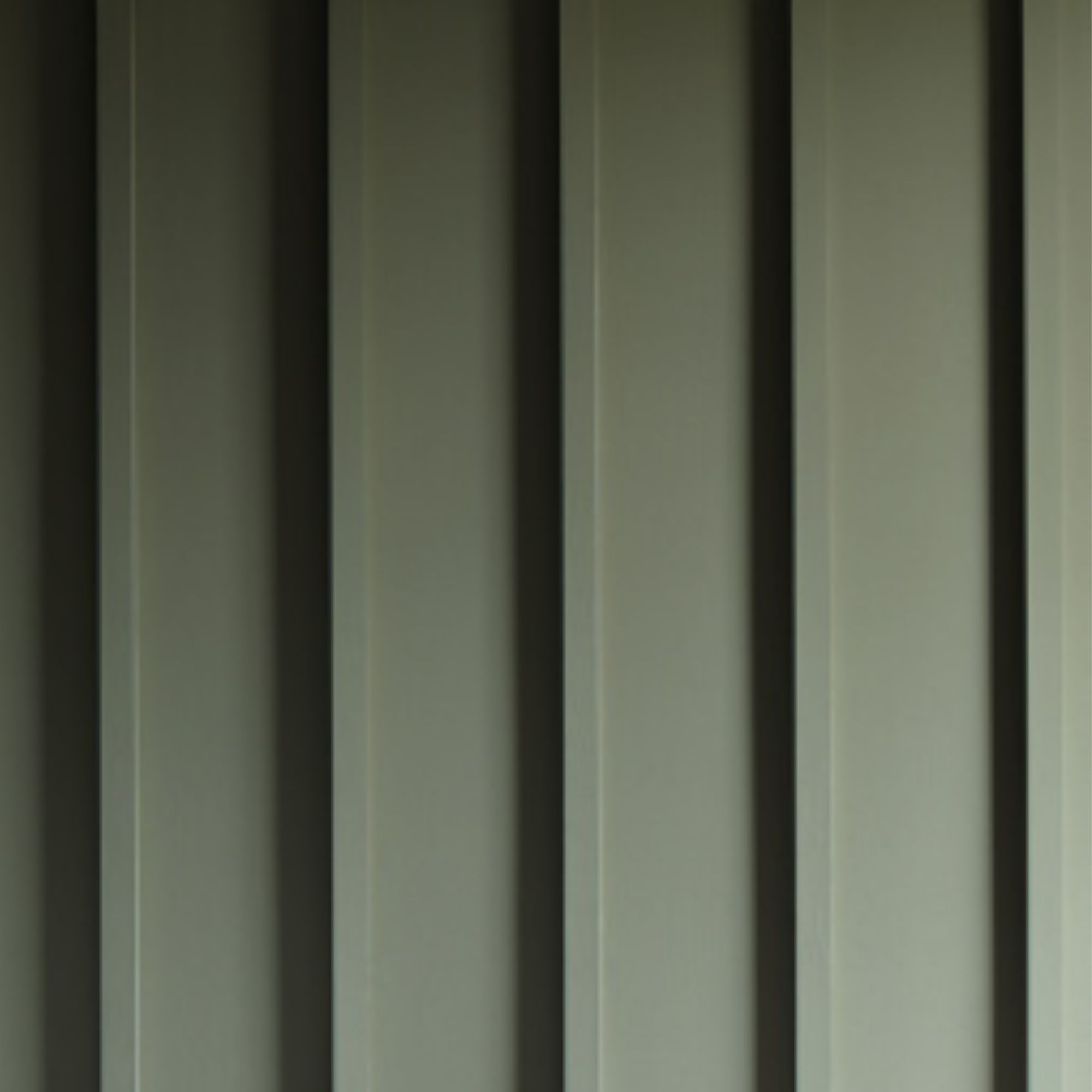
Ideal for small bedrooms, this Sage Green paint from Little Greene can enhance light and creates a feeling of spaciousness, while its earthy tones promote a restful, balanced environment.
2. Off-white
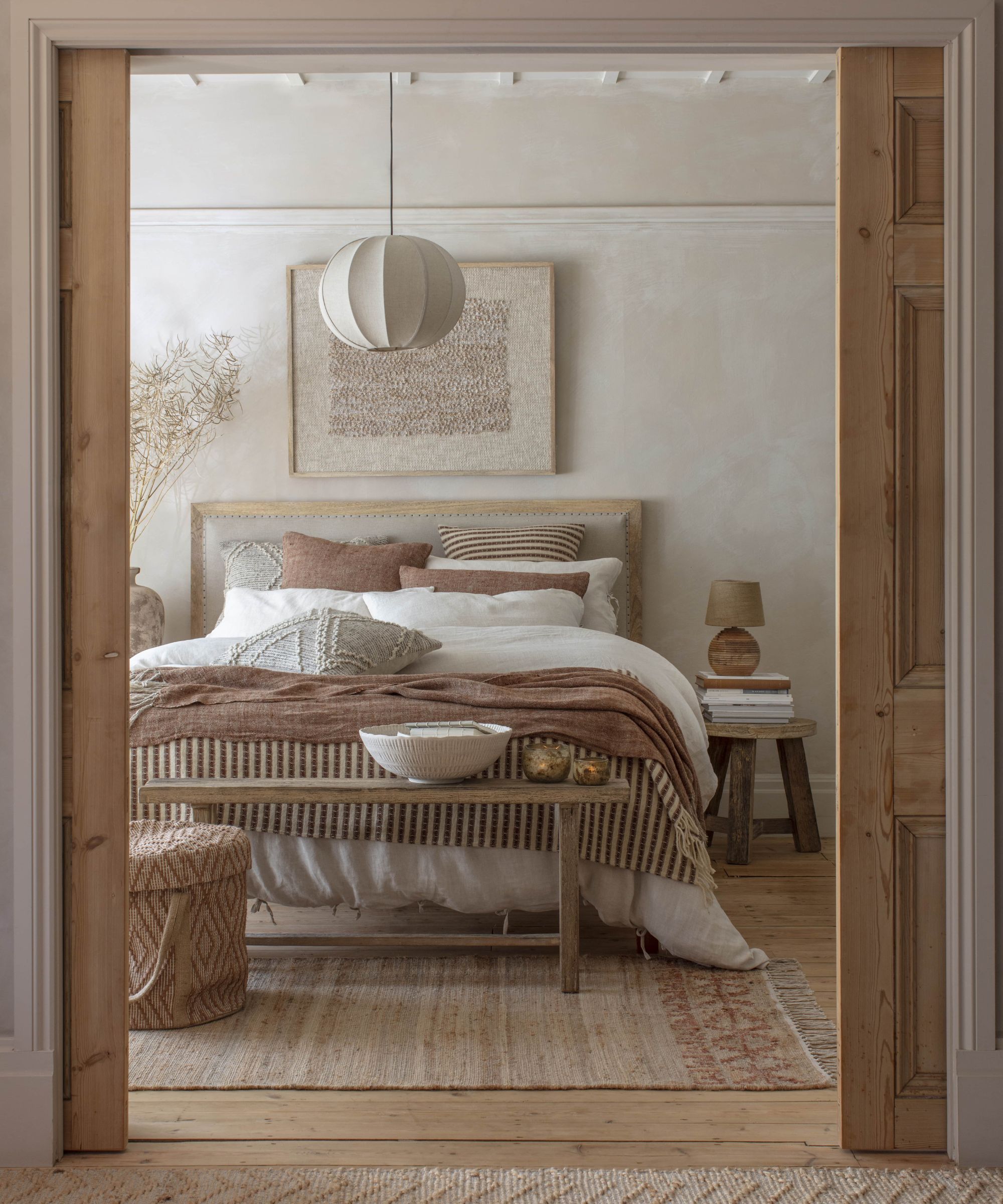
As we said above, white is a classic color choice for small bedrooms, especially small or dark ones where making your small bedroom look bigger is key. White bedroom ideas range from crisp brilliant whites to creamy off whites, so make sure you order plenty of samples to see which tones work in your space before committing.
"Keep it light and bright!" says Patrick O’Donnell, brand ambassador of Farrow & Ball. "If your bedroom is small but has the advantage of being drenched in light, keep it simple and fresh. Choose a just off-white like School House White and for walls and ceiling and pair with our softest white, Wimborne White, for a discreet contrast for all your woodwork."
"And go for one color," recommends Patrick. "A great method to give the illusion of more space is to create less contrast, for example, painting fitted closets in the eggshell finish of your wall color will 'extend' the sense of wall space. You can take the color over the ceiling too so you are less aware of where the wall stops and the ceiling starts."
But brilliant white isn't always the best choice: east- or north-facing rooms don't receive much warm light, so to make a white bedroom feel cozy, they will benefit from white with a tinge of yellow or pink in the mix. For a very sunny bedroom, think: cooler tones.
"French Gray is a perfect choice here, with its green tones, it is ultimately relaxing so perfect for a restful and timeless scheme," says Patrick.

For small bedrooms, French Gray is an ideal choice to create a restful, timeless look, while adding a sense of depth and expansiveness.
3. Charcoal and off-black
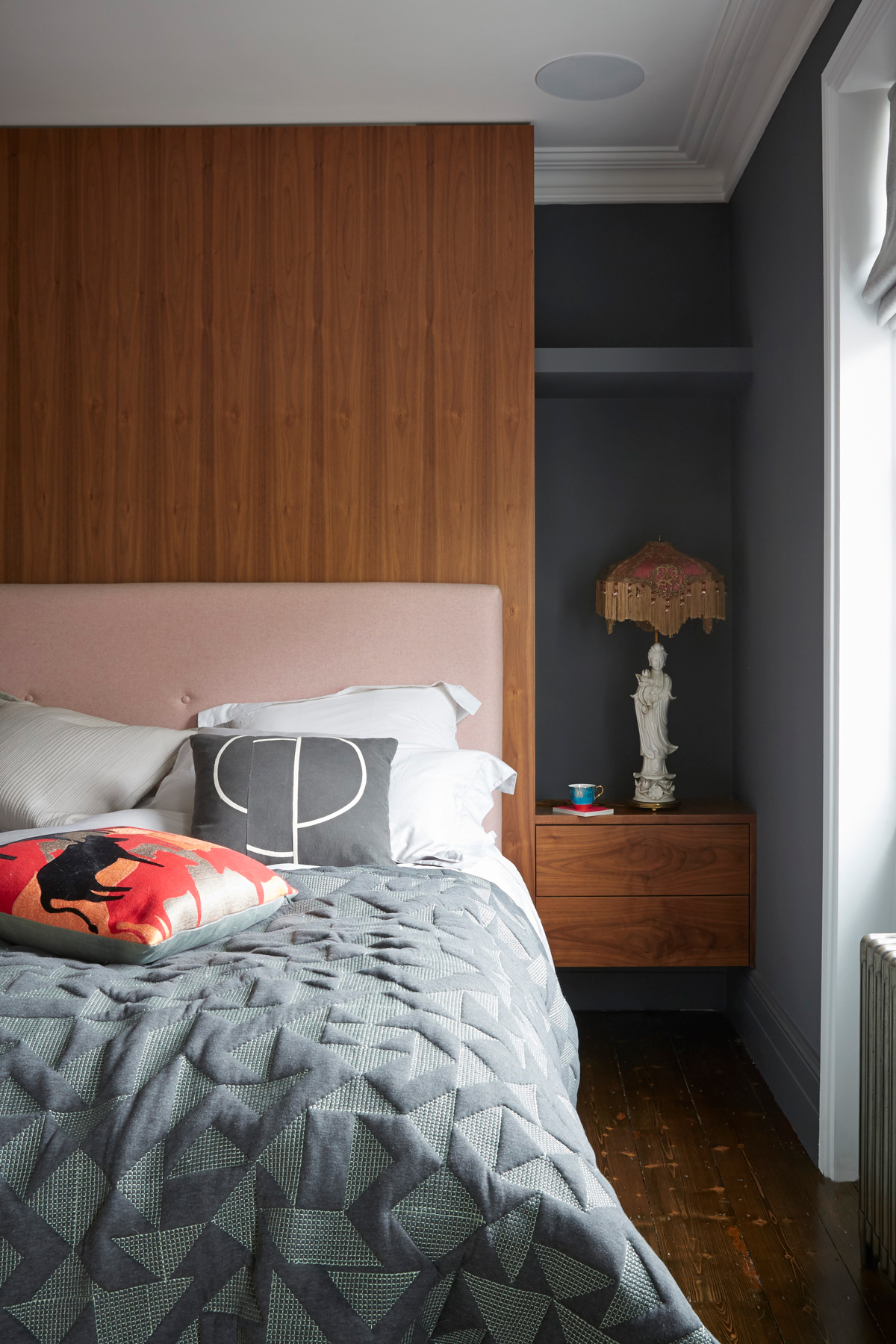
While you may have been told that black is one of the paint colors designers avoid in small spaces due to its potential to make a room feel enclosed, it can actually be a surprisingly successful color choice for small bedrooms. When used correctly, black can create a sense of sophistication and intimacy, transforming a compact space into a cozy, elegant space, conducive to rest and relaxation.
Patrick O'Donnell explains, "Black bedrooms may seem a rather dramatic departure from the perceived norm. However, it can be a surprisingly successful option, especially in a small bedroom as darker walls tend to recede. Black can also create a wonderful backdrop to pictures on the wall, allowing them to register in a new light.
"Consider more nuanced blacks such as the charcoal-toned Off-Black or the perennially popular Railings with its subtle blue note for a slightly softer look," he recommends.
"For a fully immersive color experience, paint your woodwork in the same color – especially if the room has quite low ceilings as this will help to accentuate the height of the room.”
Remember, too, that small bedroom colors are just likely to be viewed in lamplight as in daylight, so test out your color choices before you commit against both artificial and natural light.

Hopper Head is a deep, earthy green-grey. Perfect for creating a cozy, intimate atmosphere in smaller rooms, the rich, muted tones bring depth to a room without overwhelming it.
4. Blush tones
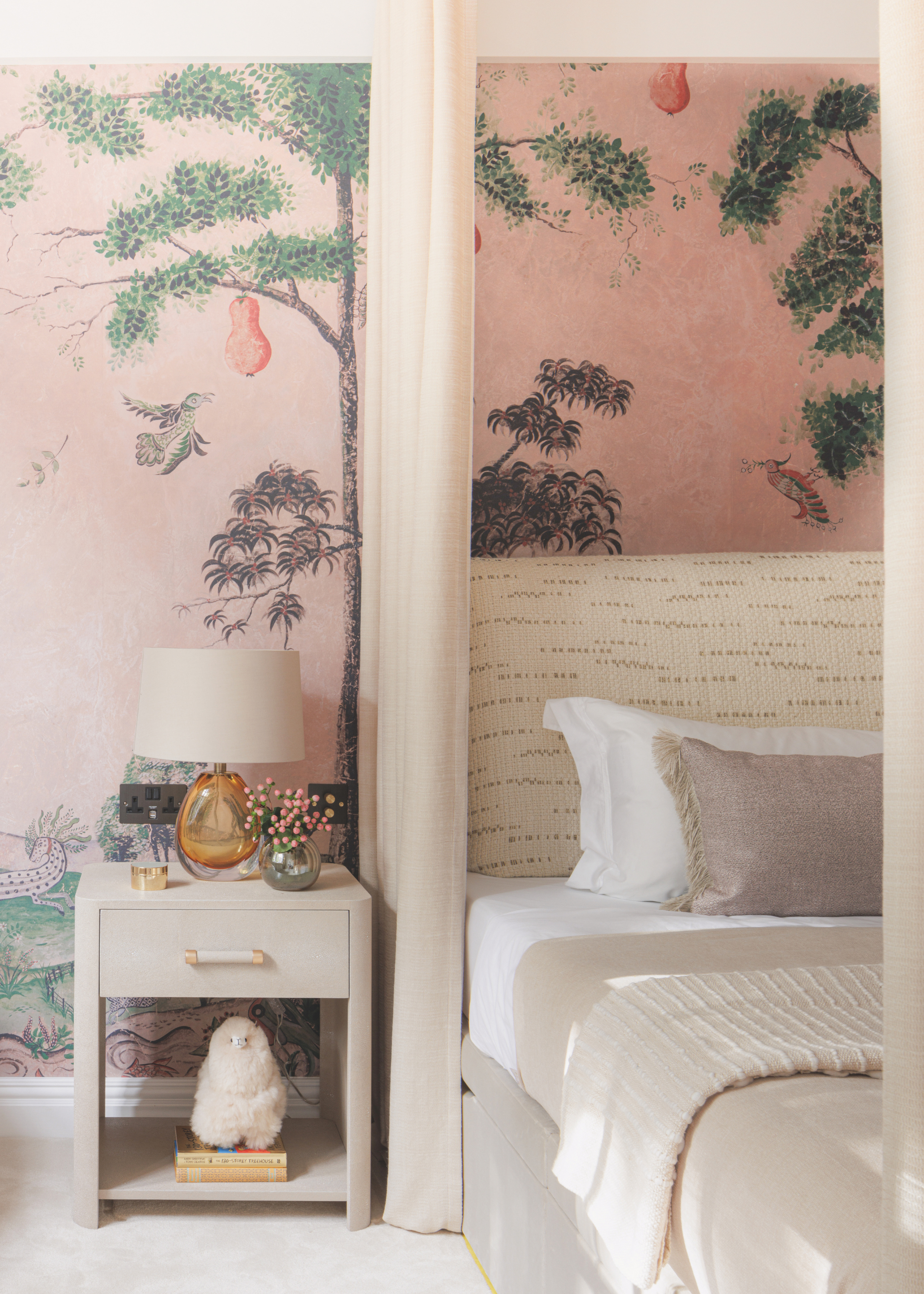
Pink bedrooms are always such lovely, soft, and inviting spaces and these blush tones can work really well in a small space. Whether you choose a light, airy pink or a deeper, more muted or deeper tone, pink has the unique ability to bring warmth and comfort to a room making it the perfect color to create a cozy, relaxing atmosphere in a compact bedroom.
As Lick Home interior expert, Natasha Bradley says; "When it comes to small bedroom colors, a lovely soft alternative to a neutral are pinks. Pink 01 / 04 are great for small spaces as they make the room feel warm and welcoming but also helps to reflect the light.
For an even more expansive feel, Natasha recommends, "Paint your walls, ceiling, and baseboards all in the same color, as your eye does not get drawn to the corners of the room, creating the feeling of space."
By creating a uniform look, your eye can move across the room without interruption, creating a visual flow, enhancing the feeling of openness and making the space feel larger than it is.

This soft pink shade by Benjamin Moore balances warmth and lightness, making it an ideal choice for small bedrooms.
5. Serene blues
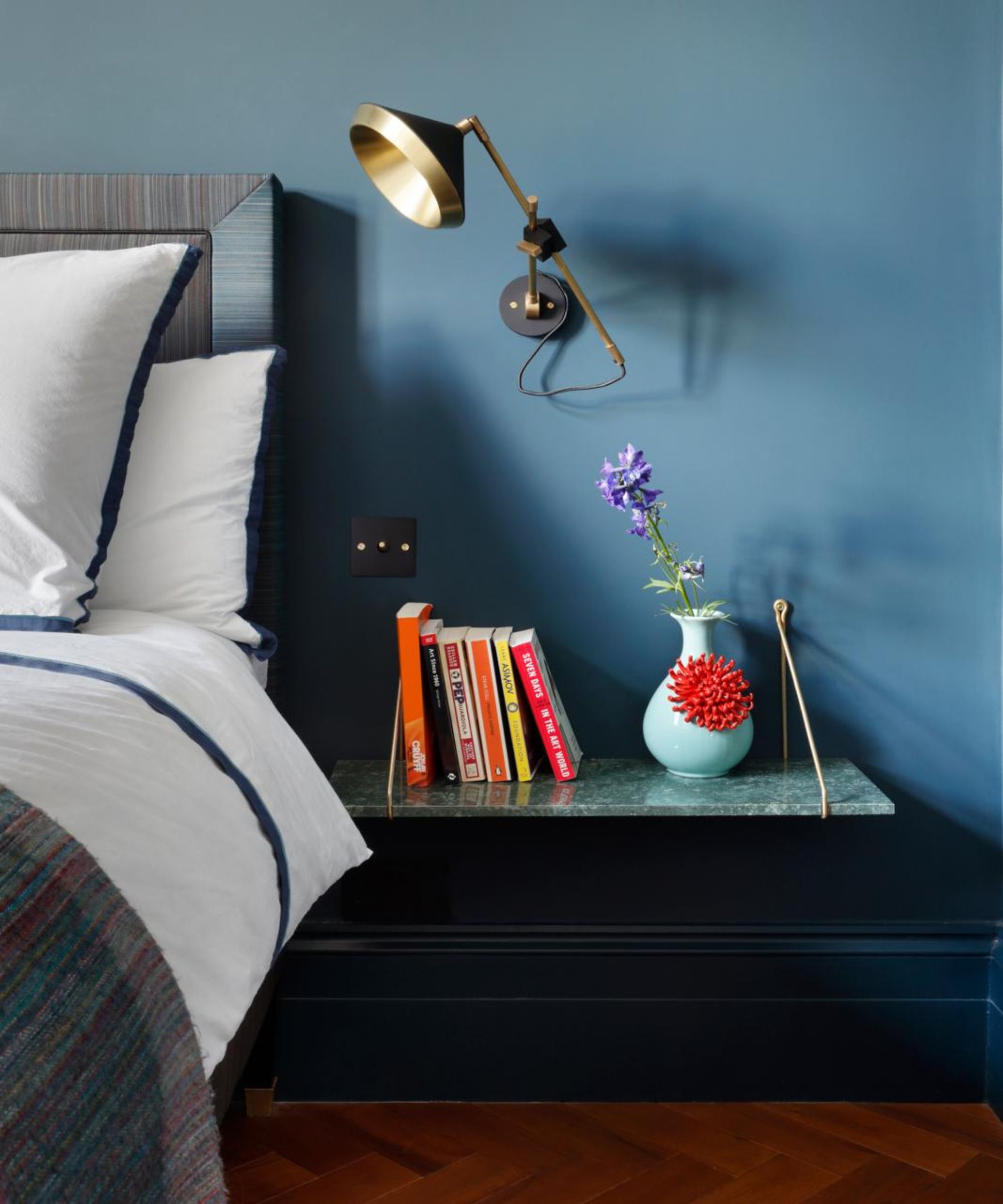
Dark bedrooms are hardly synonymous with expanding space visually, but blue bedrooms can work really well.
"Most people go for a lighter shade in smaller spaces, but a bedroom can actually feel bigger with a dark color – especially when you include the ceiling too." says COAT Paints co-founders Rob Abrahams and Rob Green "Dark colors absorb light, and blurring the hard edges of the space effectively softens them, so the room feels less enclosed. Darker shades of navy like ‘2AM’, and even off-blacks like ‘David Rose’ work amazingly, creating a cocoon-like bedroom which can help with a restful night's sleep."
"Paler colors are the go-to for most people in smaller spaces, as they can create a more open and airy vibe. But be careful of tone – warmer neutral shades with beige-brown undertones work well, but pure white or gray shades can look dingy rather than spacious."
They continue, "Think about the finish too, and using a soft sheen or gloss paint to bounce light around the space, especially where natural light is limited.'

This color has a rich, deep tone that absorbs light, blurring the edges of the room and creating a softer, more spacious feel, key for small bedrooms.
6. Sunny yellows
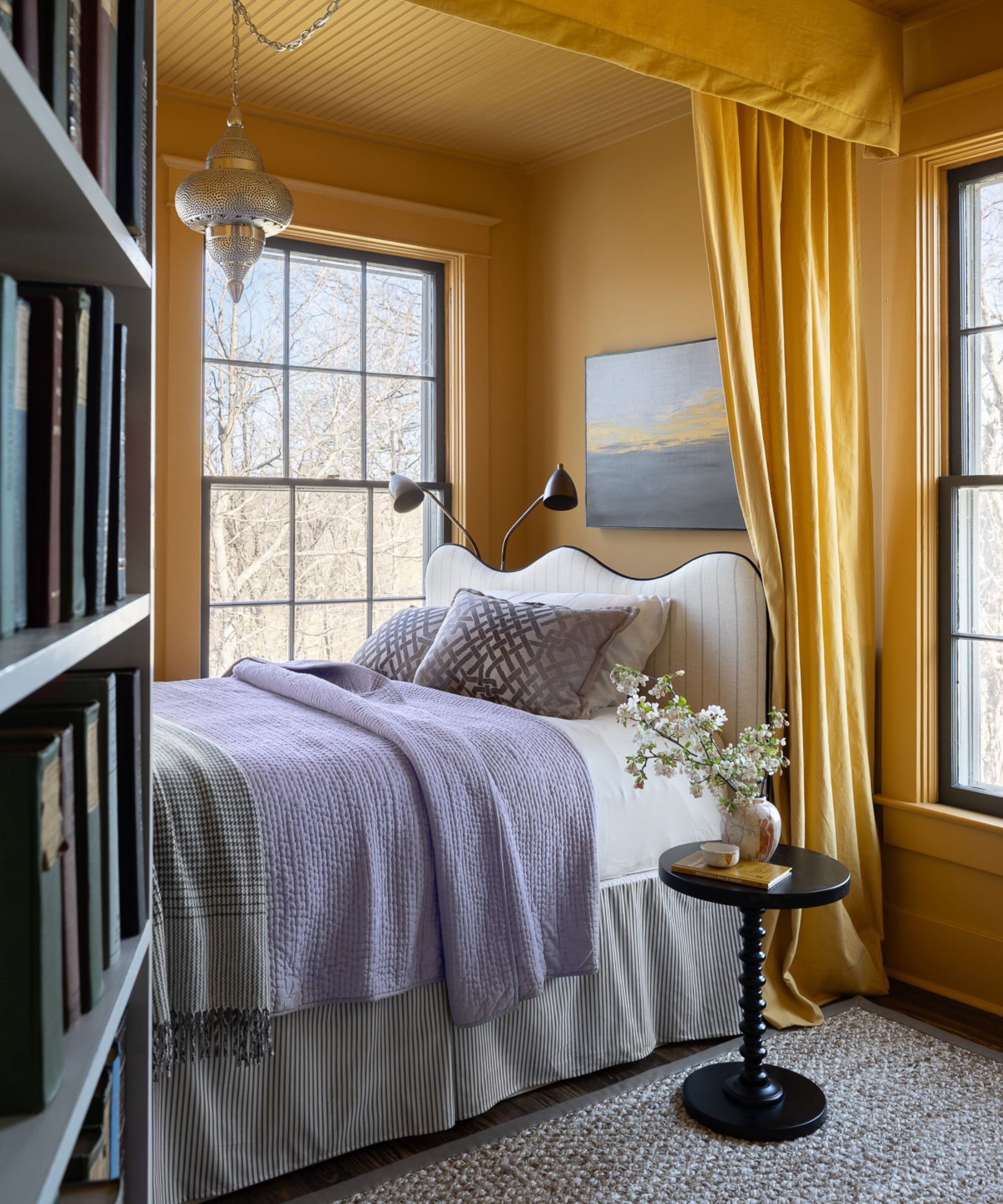
Design by Kathleen Walsh
"Yellow is an unexpected, but delightful choice for a small bedroom, particularly when you paint the ceiling and trim with the same hue," says Bethany Adams of Bethany Adams Interiors. "Where a small bedroom might make one a bit glum, it's impossible to feel anything other than cheerful in a room this sunny."
The cheerful hue reflects natural light, making small bedrooms feel airier and larger than they are. So, whether you choose a soft buttery or mustard yellow for a gentle, sun-kissed look or a more vibrant shade such as lemon or daffodil for a bolder impact, yellow has the power to energize and open up a space.
When decorating with this color, keep in mind that it pairs well with white or light wood accents, and light neutrals like beige or gray for a balance that helps balance its vibrancy, keeping the room from feeling overwhelming.

With its warm, golden tone, Sunlight by Little Greene is the perfect shade to brighten up any small bedroom.
7. Metallic silvers
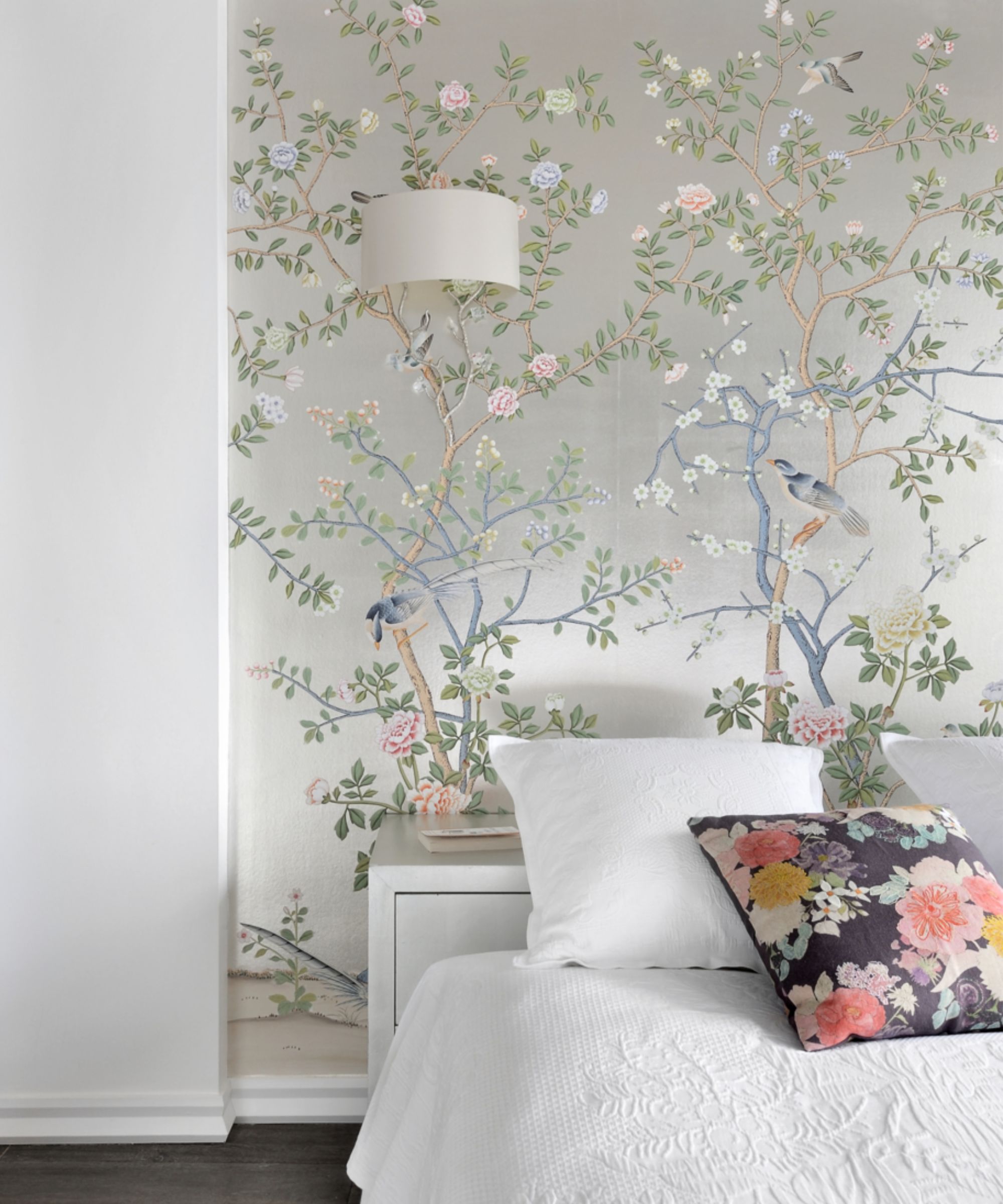
Silver tones are a nice alternative to grey as a small bedroom color idea. It might sound flashy but can in fact create a very elegant bedroom color scheme that feels fresh and contemporary.
As Nina Tarnowski, founder and designer for Woodchip & Magnolia advises, "For a more muted and relaxing space, light walls are more reflective and will bounce natural light across the room, making it appear larger and more open. For maximum effect, opt for off-white tones like magnolia or soft pinks."
And you don't just have to bring in colors with paint, a wallpaper with a metallic sheen can have just the same effect and bring in pattern and texture.
8. Rich jewel tones
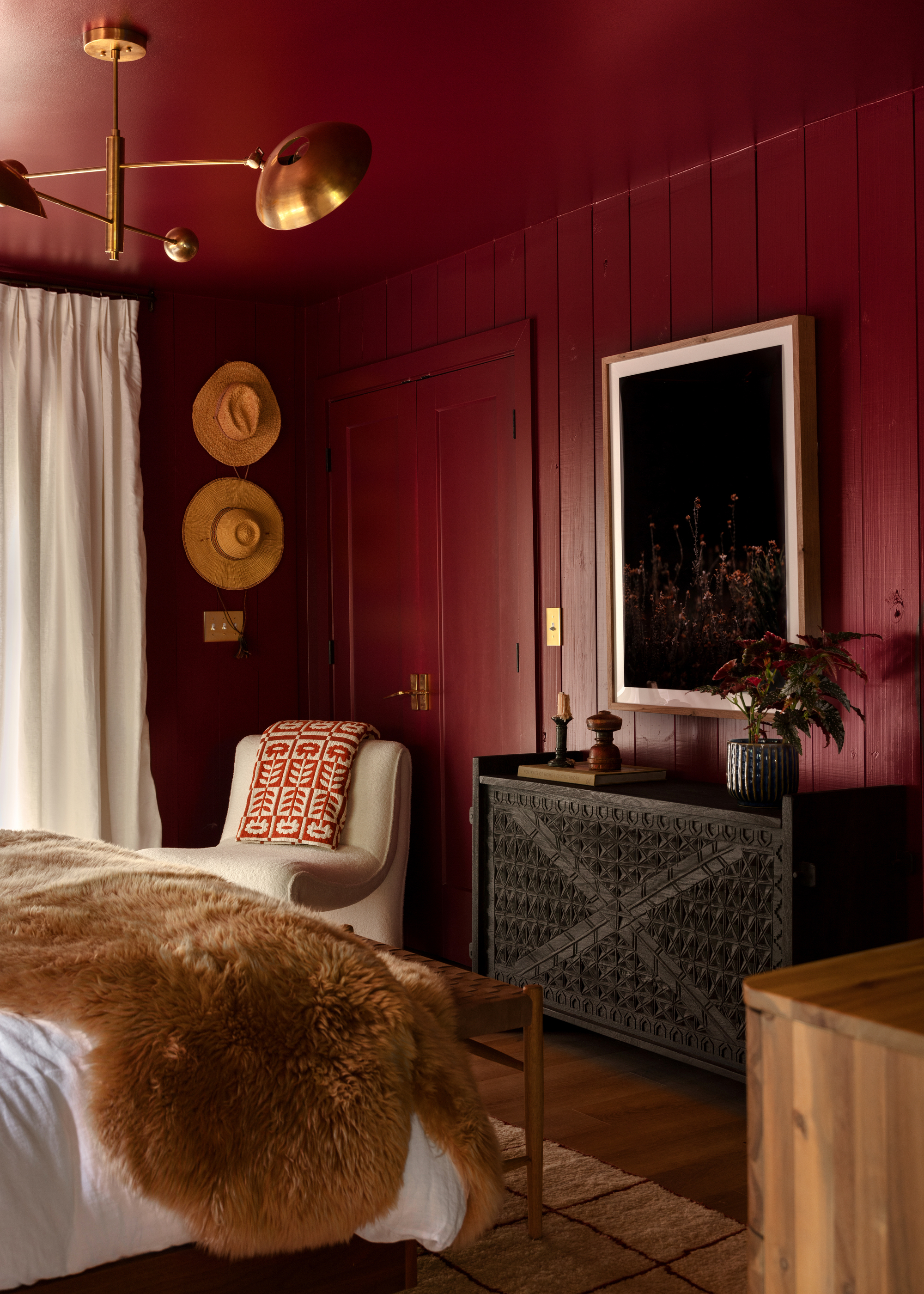
Decorating with jewel tones, such as deep emerald greens, sapphire blues, and rich amethysts, may seem too bold a color choice for small bedrooms, but they can actually work wonders in the name of creating a sense of luxury and depth.
Rich jewel tones can add depth and character to smaller rooms, creating a unique balance of openness and intimacy. Their ability to make walls visually recede gives the impression of a more expansive space, while their rich, saturated hues envelop the room in a cocooning, cozy ambiance. The result is a bedroom that feels both luxurious and welcoming.
Pairing these tones with lighter, complementary neutrals – like soft whites or warm beiges – can create balance, allowing the color to stand out without making the bedroom feel too cramped. If you’re cautious about using dark colors in a small bedroom, consider painting a single accent wall.
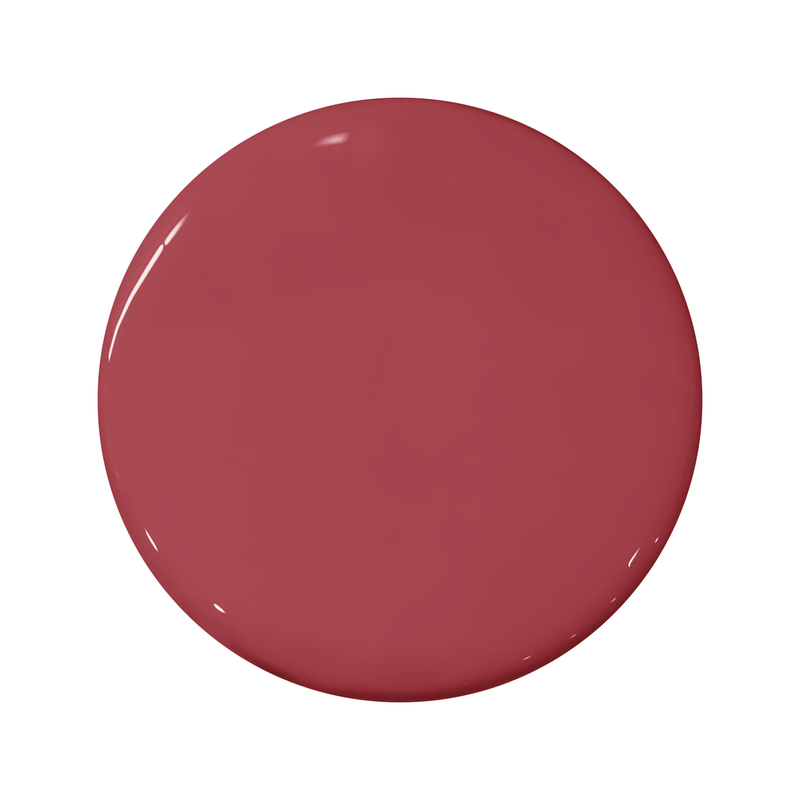
Portola Paints' Foxy shade brings depth and sophistication to compact spaces. This jewel tone interacts with light, offering a dynamic look that shifts throughout the day.
9. Warm neutrals
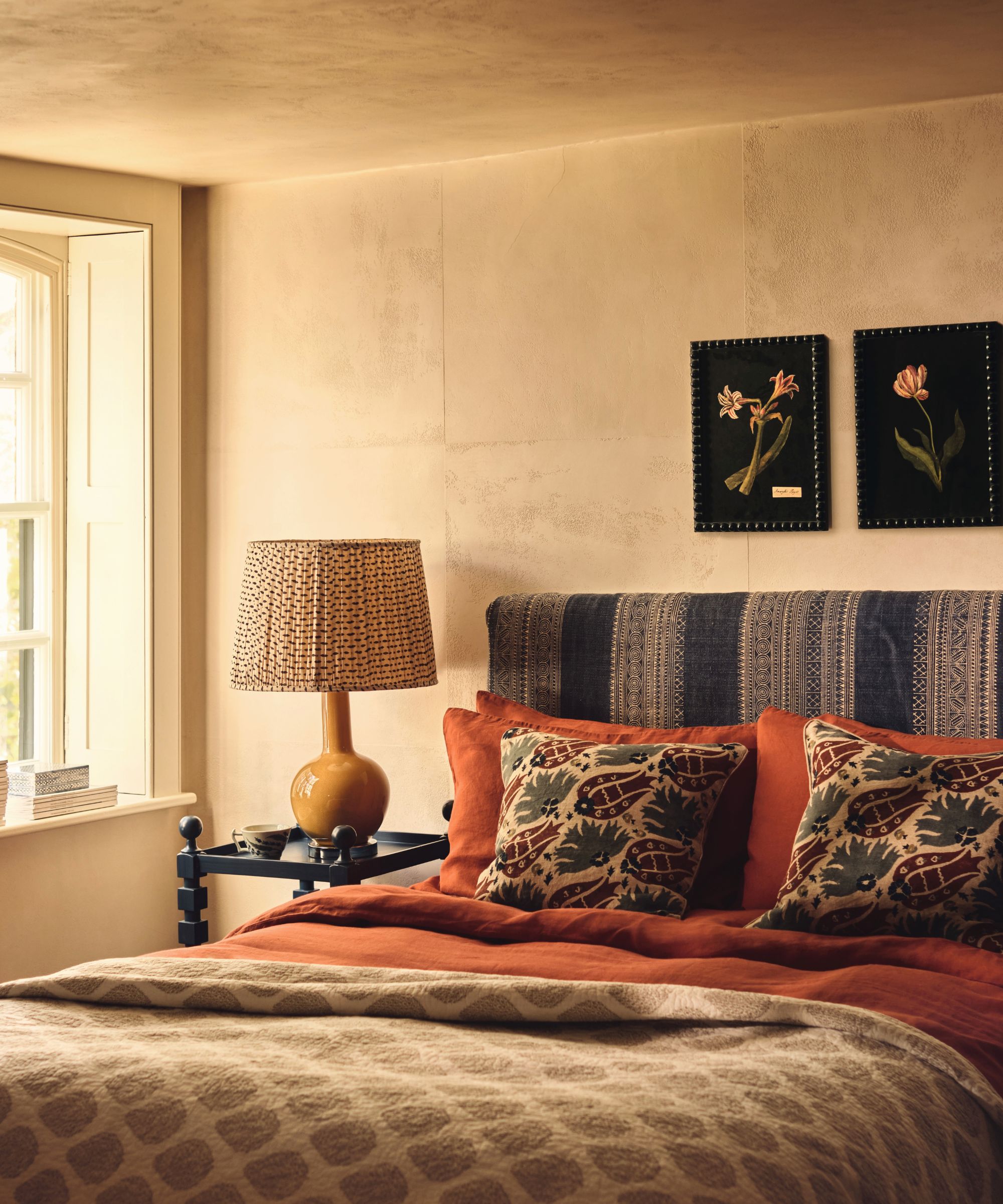
If you like a neutral bedroom, but are after something softer than plain white on all four walls, instead opt for a deep warm beige or even a muted pale terracotta tone, bearing in mind that beige bedroom ideas are easier to coordinate around than the bolder end of the neutrals spectrum.
"The color on the walls can determine how the room feels. Many people think that small spaces require white walls, however contrary to belief, warm muted tones or deep sultry hues work well in smaller bedrooms as they cocoon the room to make it feel cozy," say Jen and Mar, founders of design studio Interior Fox.
Should you always paint the ceiling white?
"Don't ignore the ceiling, it's is the important fifth wall in a room, but often forgotten," continues Jen. "When introducing paint, choose a color that complements your overall scheme and doesn’t clash with the walls, trim work, and existing furniture. If the room has a neutral palette, consider injecting a pop of color to the ceiling for added drama, it creates a real wow factor to the smallest of spaces."

This muted pale terracotta exudes warmth and coziness – its earthy undertones cocoon the space making it ideal for smaller bedrooms.
10. Bold colors: pair dark shades with vivid brights
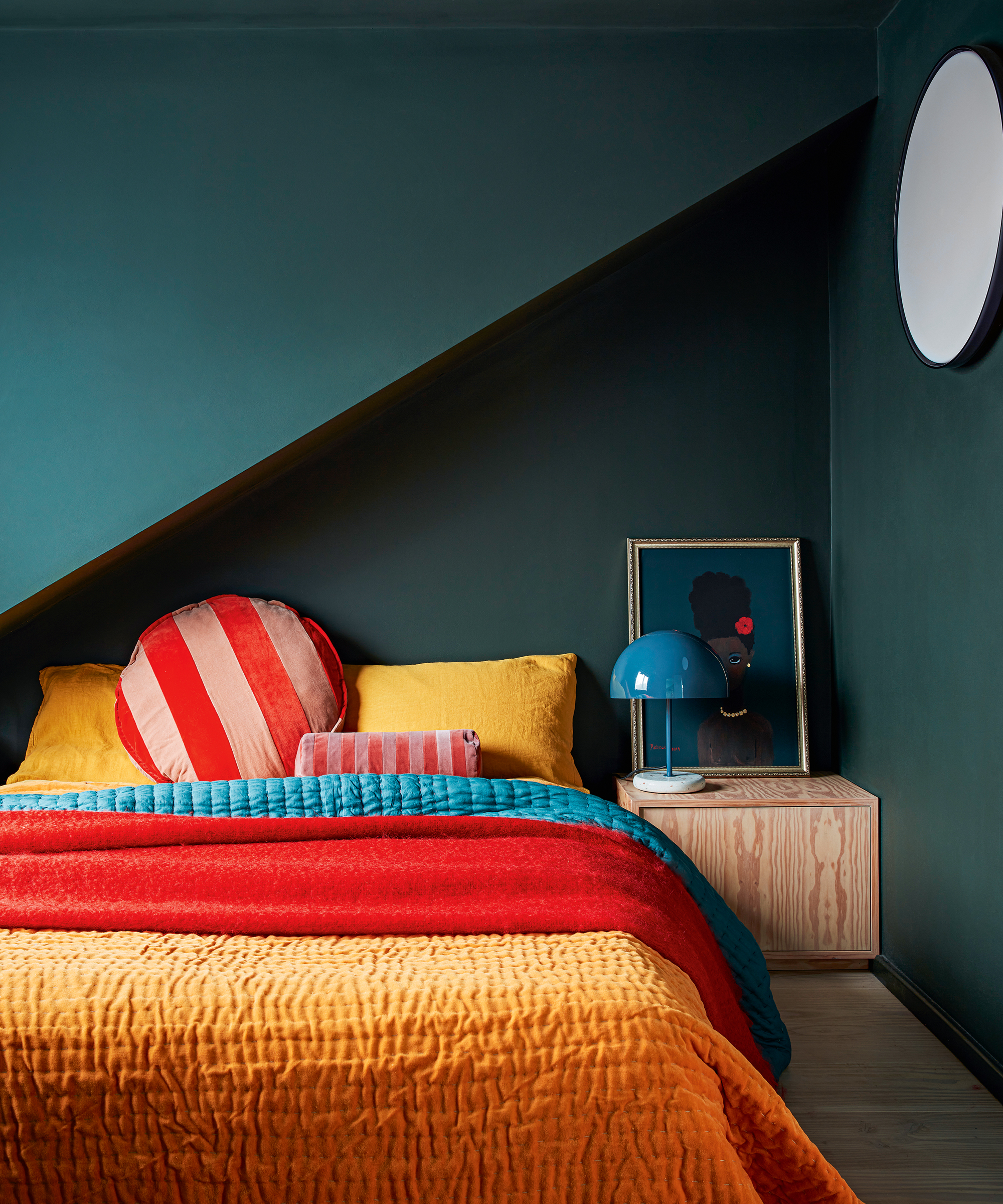
"Some fear that adding a deep or bright color to a small bedroom will make it appear claustrophobic, opting instead for light neutrals to keep the space open," says Helen Shaw, Director of Benjamin Moore. "However, when working with a small area, dark colors cleverly absorb the light of a space, making the division between walls appear blurred.
"This ‘blurred edges’ effect adds depth and dimension to a room, making it appear larger. In addition, incorporating a rich or bright paint color into a small space is a fool-proof way to create an instant character, taking a room from sterile to stylish. Smaller areas are actually a great place to experiment with colors that are bolder than those you would normally use, as this will have a less dramatic effect than opting for a statement hue in a large room."
"If you crave personality, consider a feature wall in a deeper shade, like navy or charcoal, balanced by lighter tones elsewhere. This creates a cocoon-like effect without feeling too heavy," advises Jessika Gatewood of Gatewood Designs

Ideal for feature walls or a full-room transformation, its rich, dramatic hue exudes timeless sophistication. Pair it with lighter accents to balance its boldness for a space that is both expansive and enveloping.
FAQs
How do you paint a small bedroom with color to look bigger?
The key with paint is not to break up the space too much. Avoid feature walls that will make the boundaries of the room really clear and instead go all over with one color, including the woodwork, and if you want to make a statement go up onto the ceiling too.
If you want to add height to a small room definitely avoid leaving the ceiling brilliant white while the rest of the walls are in color as this is only going to make the ceilings feel lower. Instead either paint the ceiling or try the trick where you just paint a proportion of the wall to waist height, with a lighter color above to make the ceilings appear higher. Stick to a darker shade on the bottom and choose a neutral for the rest of the wall and the ceiling.
Which colors brighten up a small bedroom?
When it comes to the best color for brightening up a small bedroom, you can't go wrong with a warm white. It's always going to make a room feel lighter and more open, but not all white shades are made equal and you have to pick the right one for your space, which is best done through using paint samples to view the colors in varying lights over a week or so.
COAT Paints' co-founders, Rob Abrahams and Rob Green, recommend that you consider:
"What direction does the room face? Get the compass out on your phone and check. In all cases, north-facing rooms have a cooler and less intense light, and south-facing rooms are naturally brighter and warmer. So if you’ve got a north-facing room to choose a white with yellow or brown undertones – a bit creamier or earthier, to help neutralize the cooler northern light. If you’re blessed with a sun-filler south-facing room then you can go bright white if you like, or choose something that’s very slightly gray to knock-out the yellow light and create a more balanced white.
"How do you want to feel in the space? Bright white is naturally quite stark unless you soften it with furnishings, whereas creamier whites are warmer but not quite as crisp. A nice mid-point could be a very pale greige paint which has grayish-brown notes that add an earthiness to the white without it feeling magnolia."
What colors make a small bedroom look cozy?
Sometimes the best thing to do in a small bedroom is just lean into the dimensions and choose a color that's going to make the bedroom cozy and enveloping. Try deep navy blues, dark greens, and charcoal grays; they all work well if you take them over all four walls and then give the room a softness by layering up plenty of neutral bedding and bringing in some natural materials like rattan and wood for texture.
While we recommend using one color in a small bedroom as it creates an uninterrupted flow that tricks the eye into perceiving the space as larger than it is, blending tonal variations within a monochromatic scheme can add subtle depth and interest.
Jessika Gatewood of Gatewood Designs explains: "Using a single color palette with slight tonal variations helps visually elongate the space. For example, pairing a light gray on the walls with darker gray bedding can create subtle depth."
By layering textures and finishes within the same color family, you can avoid visual contrast, making the space feel more open and unified while adding depth and dimension to the space.
Regardless of the color you paint your small bedroom, remembering these key principles – using a unified color palette, incorporating varied textures, and minimizing harsh contrasts – can be key to success.
Be The First To Know
The Livingetc newsletters are your inside source for what’s shaping interiors now - and what’s next. Discover trend forecasts, smart style ideas, and curated shopping inspiration that brings design to life. Subscribe today and stay ahead of the curve.

Formerly the Digital Editor of Livingetc, Hebe is currently the Head of Interiors at sister site Homes & Gardens; she has a background in lifestyle and interior journalism and a passion for renovating small spaces. You'll usually find her attempting DIY, whether it's spray painting her whole kitchen, don't try that at home, or ever-changing the wallpaper in her entryway. She loves being able to help others make decisions when decorating their own homes. A couple of years ago she moved from renting to owning her first teeny tiny Edwardian flat in London with her whippet Willow (who yes she chose to match her interiors...) and is already on the lookout for her next project.
- Lola HoultonNews writer
-
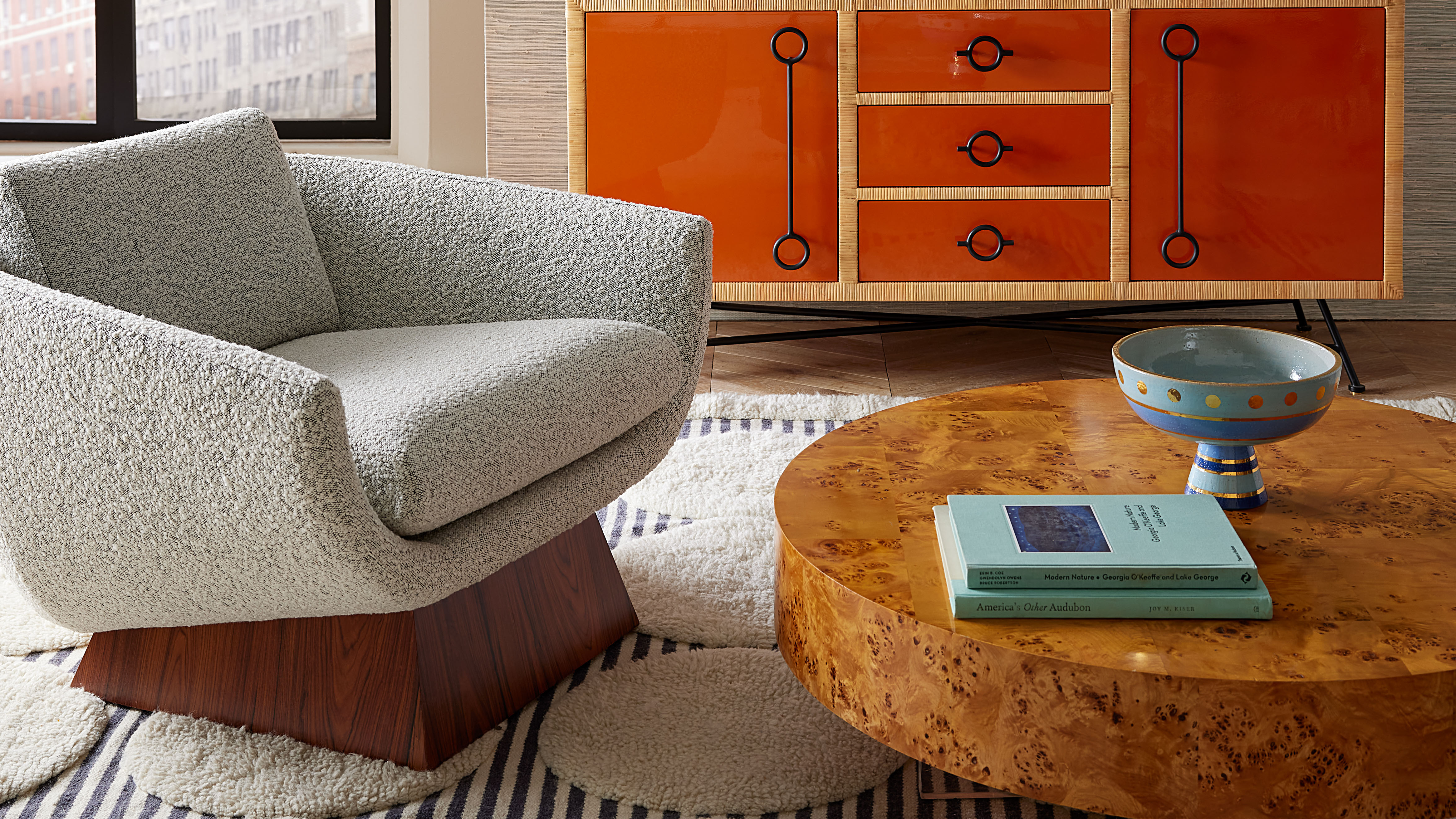 Burl Wood Decor Is 2025’s Most Coveted Comeback — Here’s How to Get the Storied Swirls for Less
Burl Wood Decor Is 2025’s Most Coveted Comeback — Here’s How to Get the Storied Swirls for LessIrregularity is the ultimate luxury, but you don’t need an antiques dealer to find it
By Julia Demer Published
-
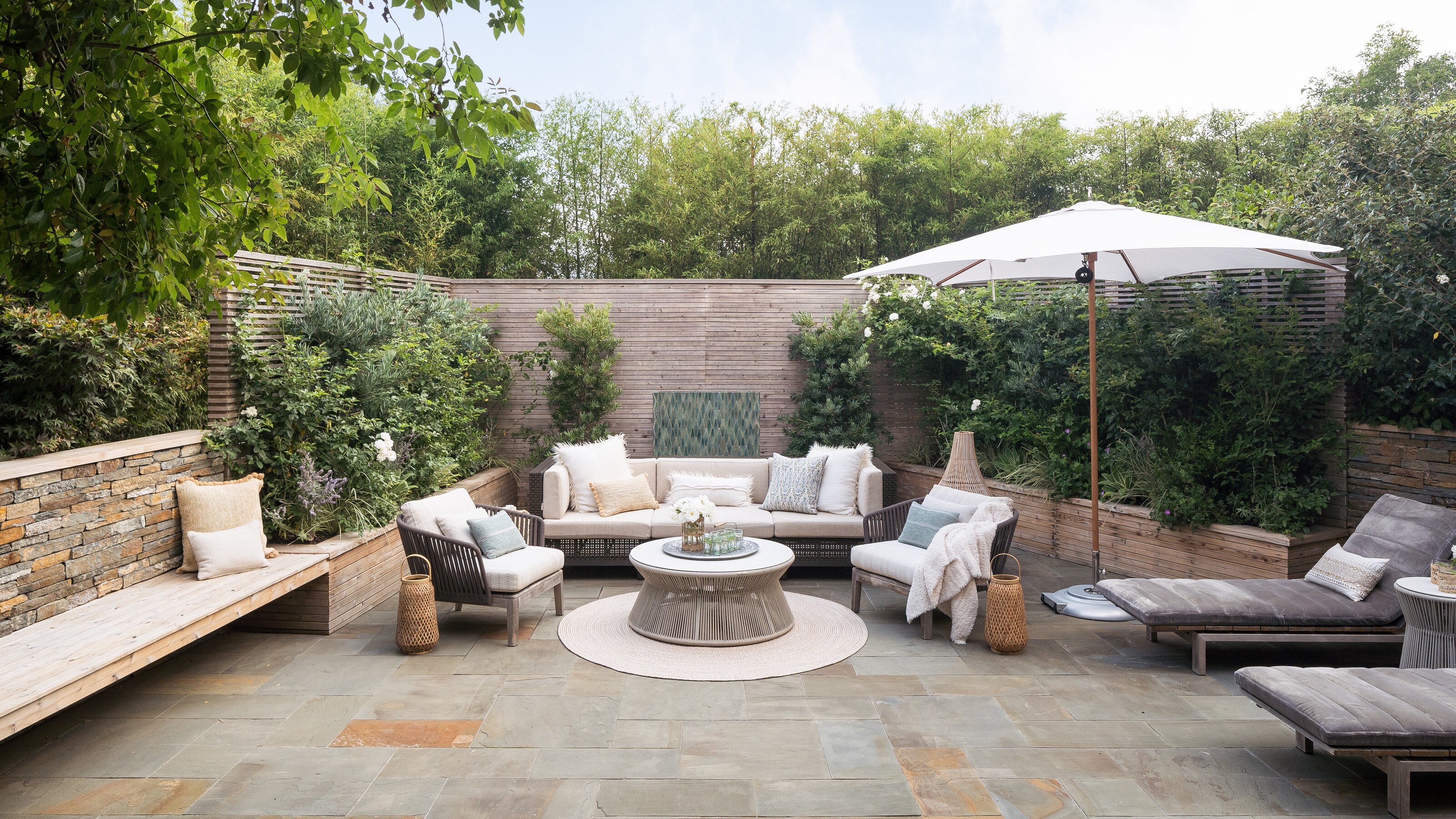 5 Garden Features That Instantly Add Value to Your Home — While Making Your Outdoor Space More Practical, too
5 Garden Features That Instantly Add Value to Your Home — While Making Your Outdoor Space More Practical, tooGet to know all the expert tips and tricks for making your backyard a standout selling point for your home.
By Maya Glantz Published
-
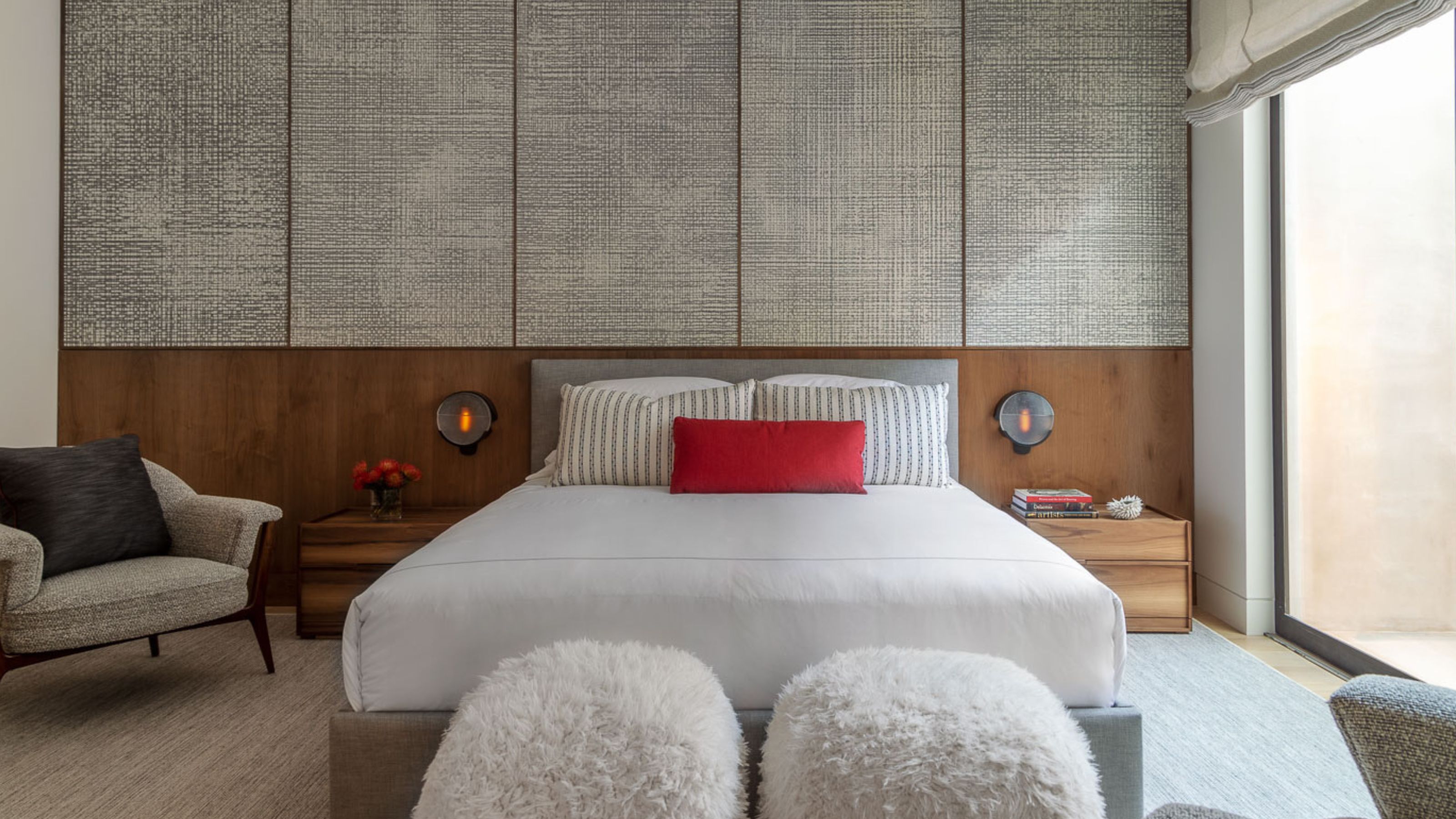 8 Japandi Bedrooms I Dream of Sleeping In — Minimalist and Cozy, They've Got to Be the Most Relaxing Spaces
8 Japandi Bedrooms I Dream of Sleeping In — Minimalist and Cozy, They've Got to Be the Most Relaxing SpacesBlending Japanese minimalism with Scandinavian practicality, this aesthetic creates bedrooms that not only look good, but are good for you
By Kelsey Mulvey Published
-
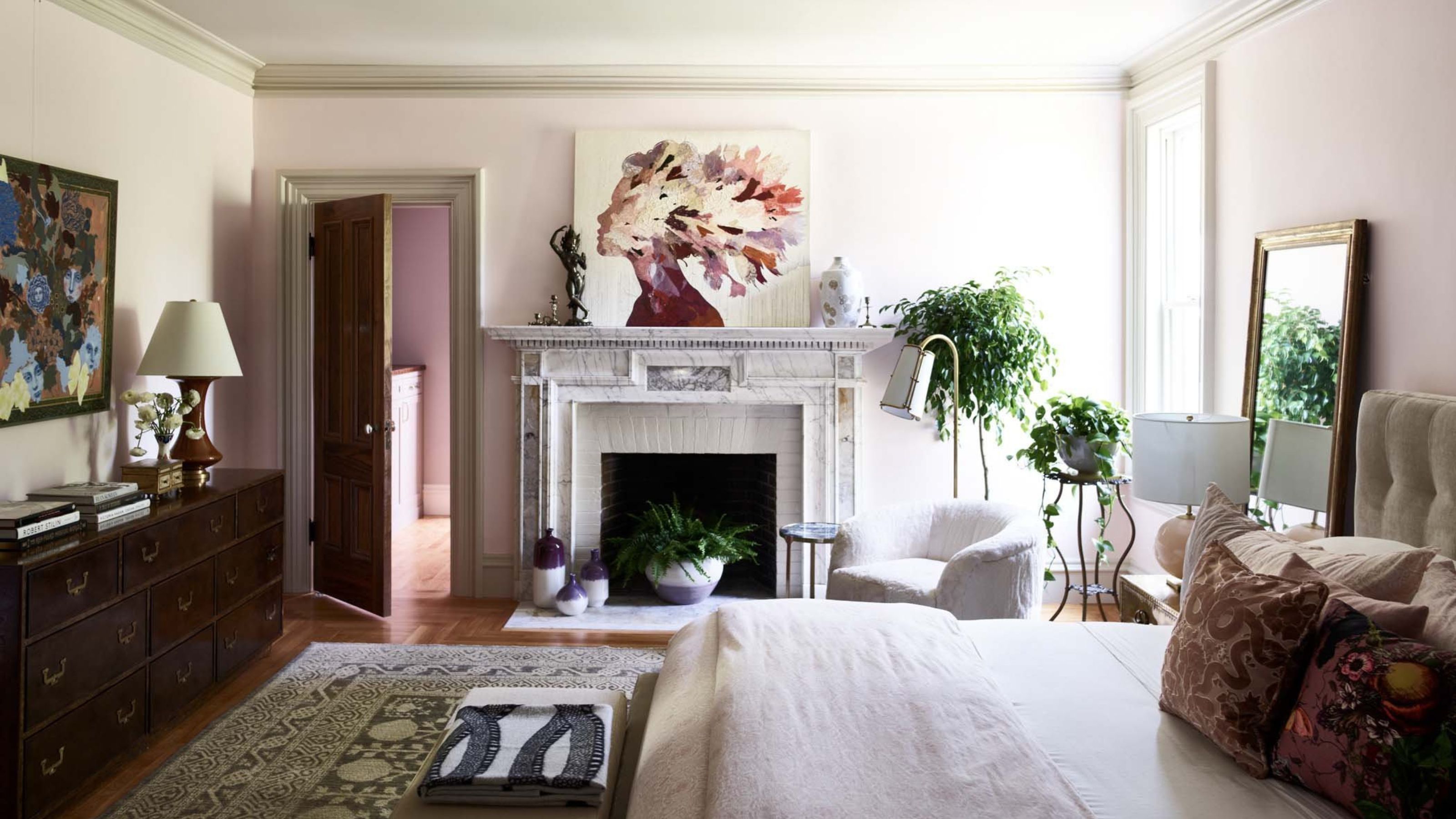 9 Easy Switch-Ups to Make Your Bedroom Feel Like Spring — For Light, Bright, and Optimistic Spaces
9 Easy Switch-Ups to Make Your Bedroom Feel Like Spring — For Light, Bright, and Optimistic SpacesFrom full-on design changes to no-effort updates, these tips from design professionals will help you refresh your bedroom for the upcoming season
By Kelly Hushin Published
-
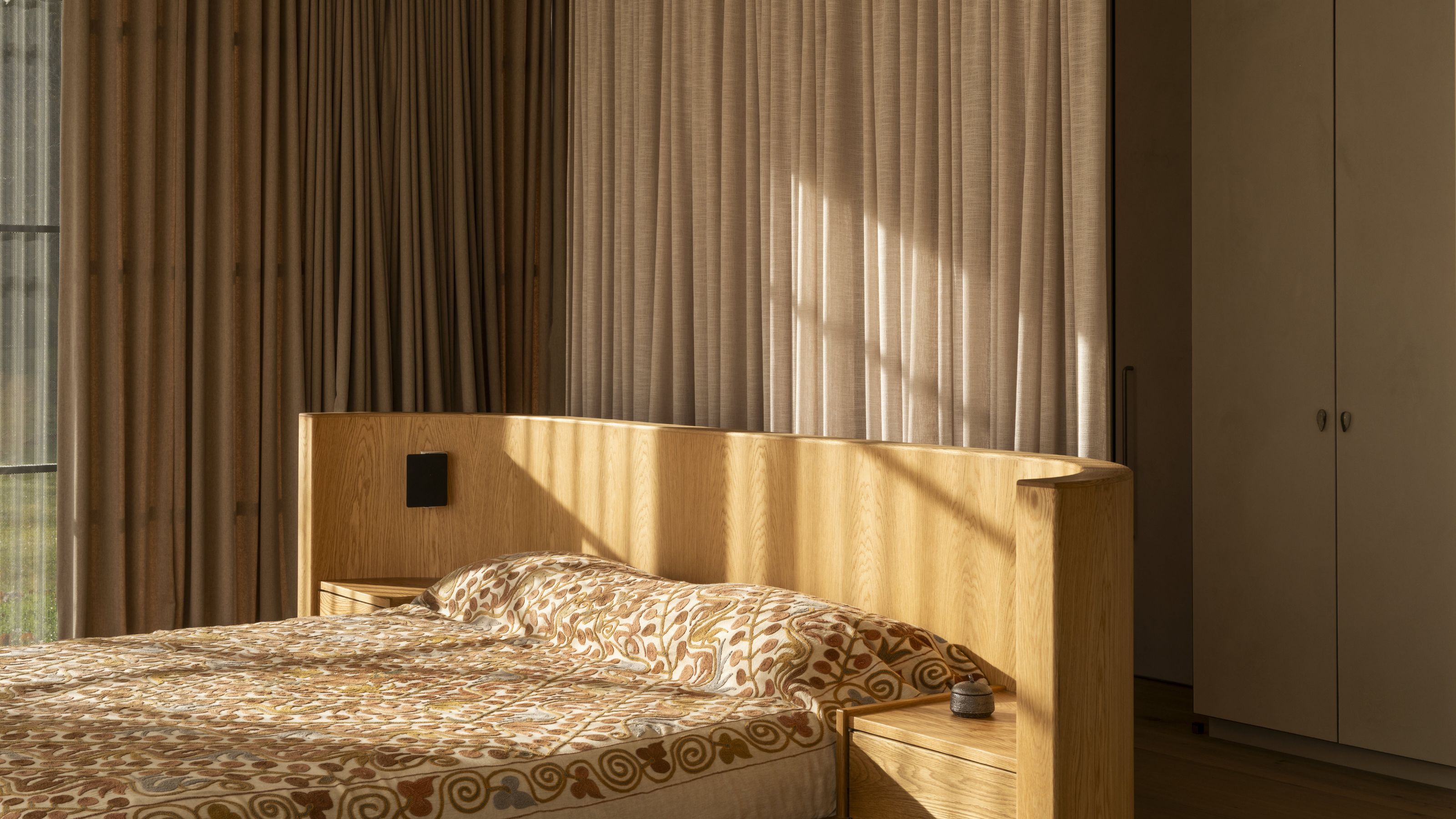 Curtain Closet Ideas — This Unexpected Door Front Will Make Your Closet Feel Bigger and Less Awkward
Curtain Closet Ideas — This Unexpected Door Front Will Make Your Closet Feel Bigger and Less AwkwardI'm calling it, traditional doors are done when it comes to our closets. Here, designers share how they're bringing curtains into clothes storage
By Maya Glantz Published
-
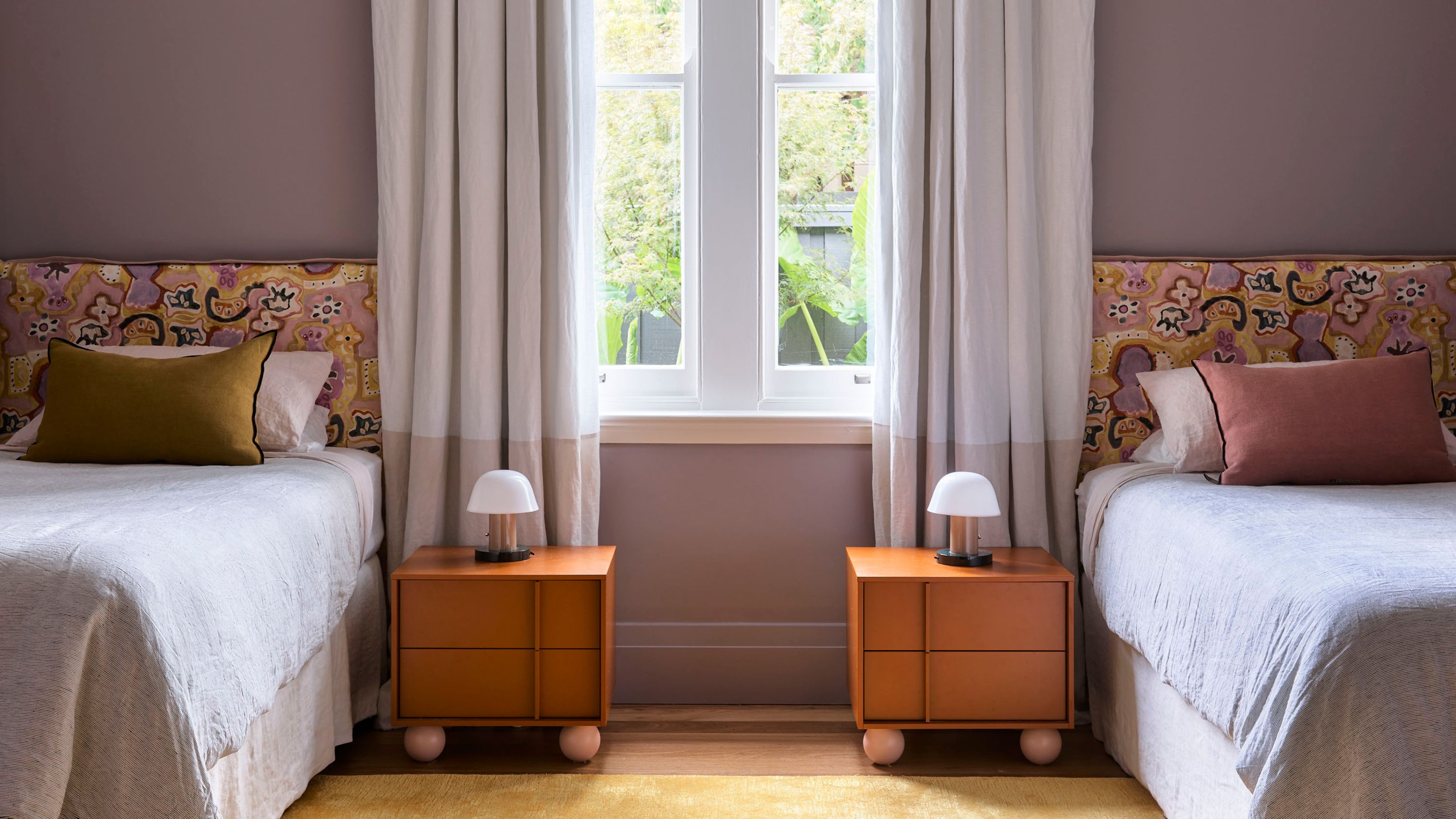 Lavender Bedrooms Are the Unexpectedly Modern Trend — Because Blue Schemes Have Been Done to Death
Lavender Bedrooms Are the Unexpectedly Modern Trend — Because Blue Schemes Have Been Done to DeathThe forever-relevant lavender is a designer favorite; it's sophisticated, varied, and versatile, and sets the stage for a beautiful bedroom
By Aditi Sharma Published
-
 Forget White Sheets — These Bedding Color Combinations Are What the Coolest Designers Are Doing Instead
Forget White Sheets — These Bedding Color Combinations Are What the Coolest Designers Are Doing InsteadIt may feel hard to ditch the classic white duvet, but a little color goes a long way. These are designer-approved bedding color schemes to get you started
By Olivia Wolfe Published
-
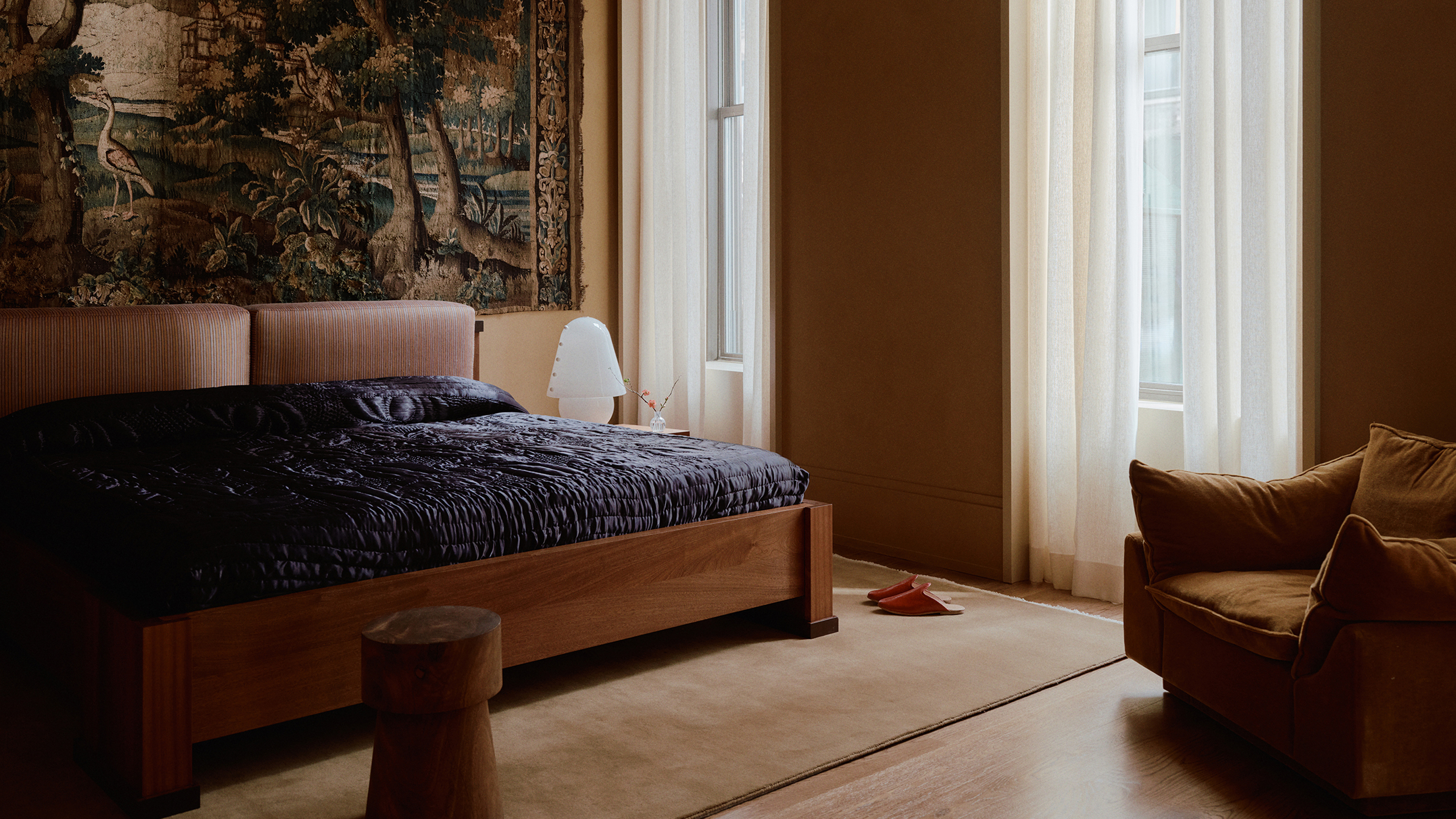 Soothe You to Sleep and Energize You in the Morning? Yes, Yellow Bedrooms Can Do Both
Soothe You to Sleep and Energize You in the Morning? Yes, Yellow Bedrooms Can Do BothThe best way to combat the winter blues is to open your eyes to a bedroom with a sunny dose of yellow, say our design experts
By Aditi Sharma Published
-
 Curtains Are No Longer Just for Windows — I'll Be Putting Them Behind My Bed From Now On, and Here's 7 Ways to Do it
Curtains Are No Longer Just for Windows — I'll Be Putting Them Behind My Bed From Now On, and Here's 7 Ways to Do itNo window, no worries. This clever design idea adds instant softness and style to your space (and even scores points for functionality)
By Olivia Wolfe Published
-
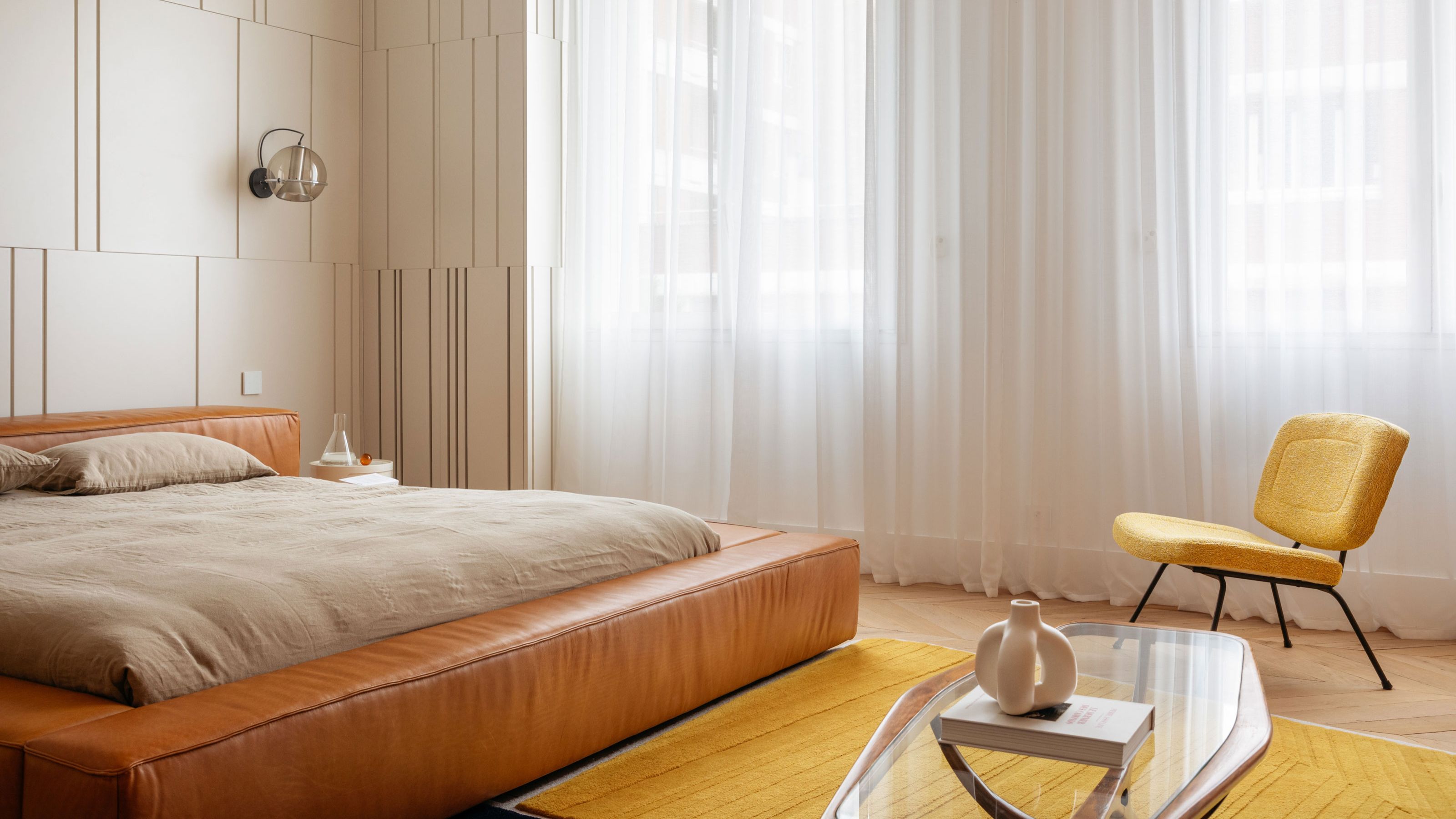 7 Colors You Can Add to Neutral Bedrooms That Will Give the Space a Bit of *Something Something*, but Still Be Soothing
7 Colors You Can Add to Neutral Bedrooms That Will Give the Space a Bit of *Something Something*, but Still Be SoothingA pared-back bedroom in neutral shades provides a calming backdrop, but that doesn't mean you can't play with color — it just has to be the right color
By Natasha Brinsmead Published